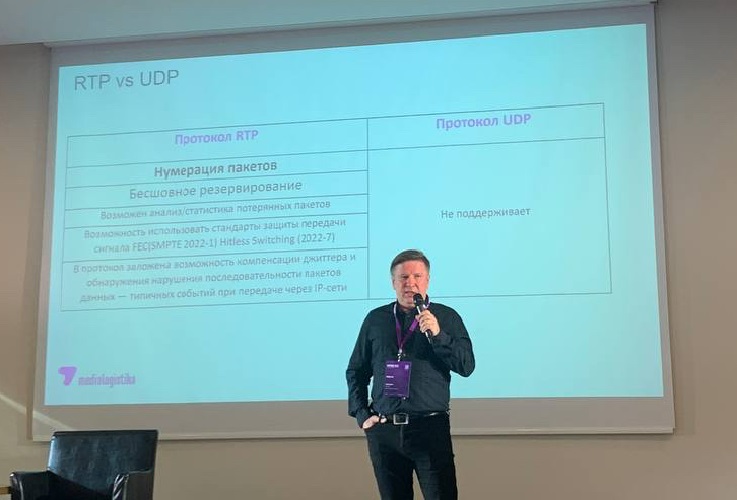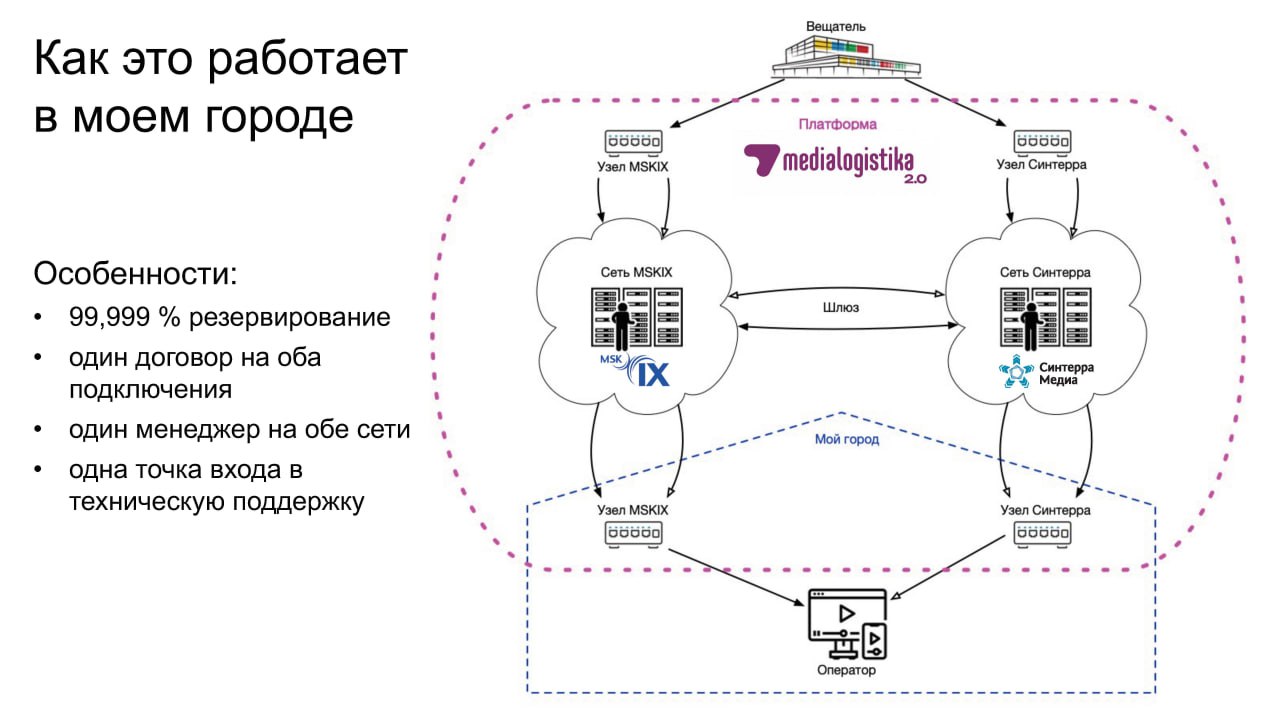Medialogistika introduces a new protocol

Sochi hosted the annual conference of Russian telecom operators, CROS 2023, organized by NAG. Since 2006, it has been gathering hundreds of telecom market professionals on one platform, who discuss the most important issues of the industry’s development, share experience, and talk about unique cases.
Grigory Kuzin, Director of the MSK-IX Medialogistika project, made a presentation at the event and spoke about the RTP transport protocol and the advantages it provides for the transmission of television signals.
If previously the Medialogistika platform used the UDP protocol for terrestrial delivery of television signals, recently a decision was made to introduce the RTP protocol, which has a number of advantages.
RTP (Real-Time Transport Protocol) is designed especially for real-time streaming of media content, while UDP is designed for general use. It supports many types of codecs and data formats and makes it possible to use various data compression algorithms to reduce the size of transmitted information, and also has the ability to detect errors and recover lost packets.
RTP’s main feature is that it allows the client to set timestamps for each packet. This opens up new opportunities for monitoring signal quality, making more accurate measurements and jitter control, and also makes it possible to organize a more reliable redundancy format in which signals can be delivered along two paths at once, and also can be mixed. If one traffic packet does not reach the main route, it will automatically be delivered via the backup route.
“Thanks to the combination of these factors, the RTP protocol allows operators to significantly improve the reliability and quality of television services,” Grigory Kuzin noted.
When negotiating the transfer from the UDP protocol to RTP, Medialogistika faced operators’ concerns regarding the need to reconfigure the equipment. But experience has shown that this issue is easily solved. RTP is a protocol that does not work on its own, but rather on top of UDP. This means that almost all equipment that supports UDP also works correctly with RTP. All the client needs to do is go to the settings and check the box “use RTP.”
It is noteworthy that Medialogistika is not yet making a full transition to the RPT protocol, since many customers continue to use UDP. But, the transition to the new protocol improves the quality of services provided by operators as well as reduces the cost of receiving television signals.
In order to encourage the use of the RTP protocol, Medialogistika decided to give operators the opportunity to test it first. The extended trial period is three months. Also, when connecting services using the RTP protocol, operators are offered special reduced rates. Considering these two factors, by connecting to RTP, operators can save about 40 percent of the cost of access to television signals in Medialogistika in the first year.
“In order to get higher quality of the received TV channels on more favorable terms, operators just need to overcome their fear of new technology and simply reconfigure their equipment to use the RTP protocol,” Grigory Kuzin summed up.








